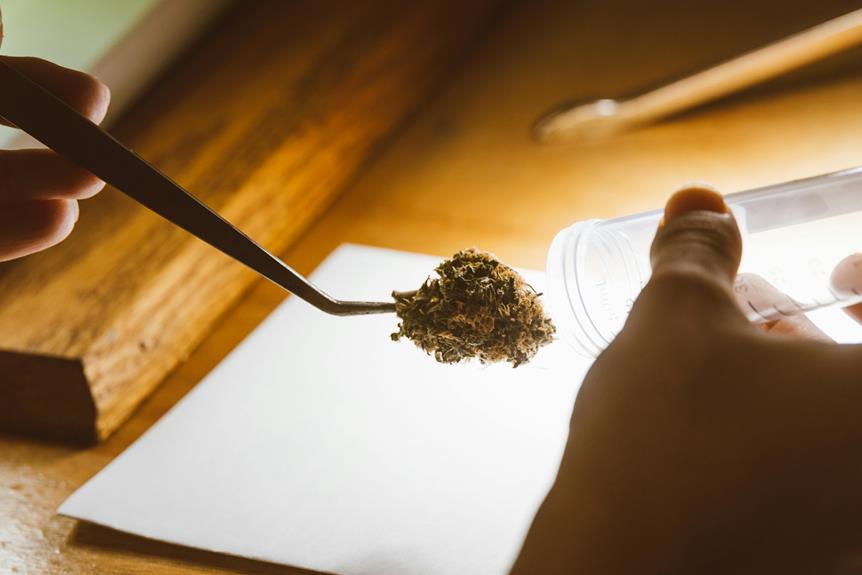The intersection of CBD usage and military drug testing raises significant concerns for service members, particularly regarding the potential for trace THC levels in certain products. Given that military regulations explicitly prohibit CBD, understanding the implications of its use is critical to avoid unintended consequences. As the landscape of cannabinoid legality evolves, it becomes imperative to examine how these changes may affect compliance with rigorous drug testing protocols. What measures can military personnel take to navigate this complex issue without jeopardizing their careers?
Understanding CBD and THC
Cannabidiol (CBD) and tetrahydrocannabinol (THC) are the two primary cannabinoids derived from the Cannabis sativa plant, each exhibiting distinct pharmacological properties and legal implications.
CBD benefits include anti-inflammatory and anxiolytic effects, garnering interest for therapeutic use.
Conversely, THC effects primarily involve psychoactivity, influencing mood and perception.
Understanding these differences is crucial for informed choices regarding cannabis consumption and its implications in various contexts.
Military Drug Testing Procedures
Given the legal and health implications surrounding cannabinoids like CBD and THC, military drug testing procedures are designed to maintain operational readiness and safety by screening for prohibited substances, including THC.
These procedures adhere to military regulations that prioritize deterrence against substance abuse, ensuring that personnel remain fit for duty and uphold the integrity of the armed forces.
Potential for False Positives
The potential for false positives in drug testing for cannabinoids raises significant concerns, particularly as CBD products often contain trace amounts of THC.
These trace amounts could inadvertently lead to adverse test results for individuals consuming these legal substances.
Variations in cannabinoid metabolism among users and the sensitivity of testing methods can further complicate results, necessitating careful consideration of the implications for those subject to drug testing protocols.
Guidelines for CBD Use in the Military
Clear guidelines regarding CBD use in the military are essential to ensure compliance with regulations and maintain overall readiness, particularly in light of the complexities surrounding cannabinoid testing and the potential implications for service members.
Current CBD regulations prohibit use, with limited military allowances.
Service members must remain informed about these standards to avoid disciplinary actions while navigating the evolving landscape of cannabinoid products.
Conclusion
In conclusion, the complexities of cannabinoid consumption, particularly concerning CBD and THC, present significant challenges for military personnel.
The potential for perilous false positives in drug testing underscores the necessity for stringent adherence to military regulations.
Awareness and avoidance of CBD products are paramount to preserving professional integrity and operational efficacy.
Thus, informed and intentional choices regarding cannabinoid use are essential to ensure compliance and maintain mission readiness within the armed forces.





